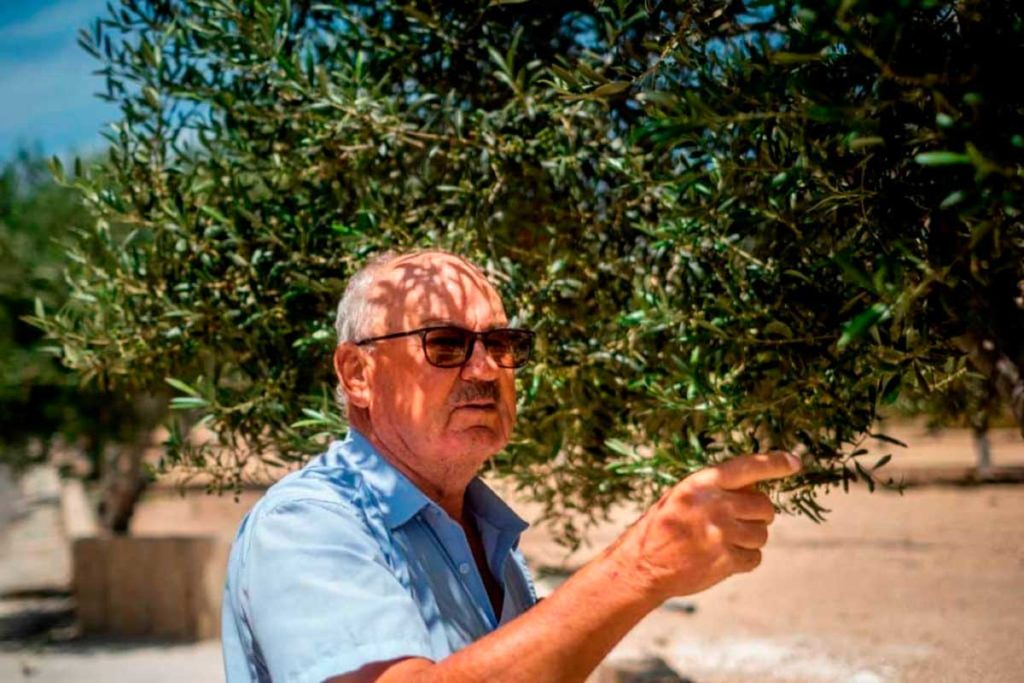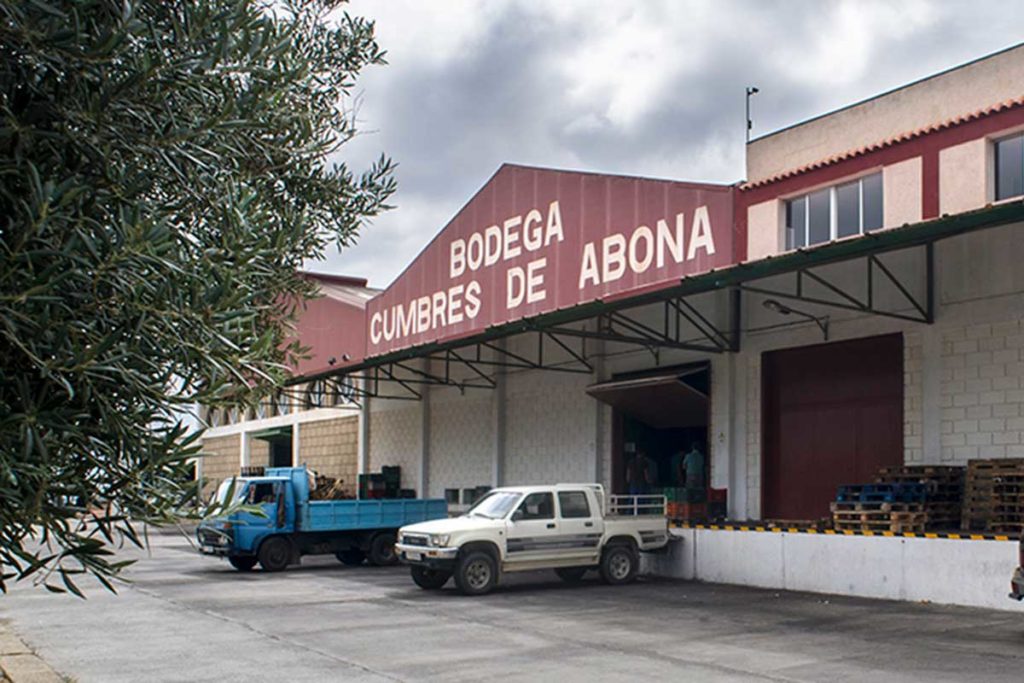Contrary to what is happening in continental Spain, a world power in olive oil, this year’s olive harvest in Tenerife is on track to break all records, according to Manuel Marrero Reyes, president of the Cumbres de Cooperativa, told DIARIO DE AVISOS. Abona, introduced in 2005 the exploitation of olive groves in the Canary Islands. “The harvest is going like never before. We have already collected 100,000 kilos of olives and we are going to exceed 200,000, which represents 40,000 liters of oil,” he says proudly, while remembering that in Tenerife there are “another 16 oil mills that produce extra virgin oil.”
Asked why these good figures, despite the heat waves experienced and which have done so much damage in the Peninsula, Marrero points out that “it is true that we have had those heat waves, but the water that fell in September of last year was very good to our olive trees.” “The olive tree, like the almond tree, does not need a lot of water. If you water it, it gives you more, but if you don’t it can continue to live for two or three years. If we wanted and had more water we could reach a million kilos, as many as we collect grapes, to be self-sufficient in virgin olive oil in Tenerife.”
Regarding the high price of oil, Manuel Marrero states: “That is where they call Spain, here the price is still 20 euros per liter, like two years ago; the extra green virgin Oleoteide has a much higher quality and is cheaper in its category than in Spain”, “Last year we sold everything and this year, after starting the collection in July, we are already selling this year’s one, at 15 euros per liter when it comes to five-liter bottles,” he explained.
This year, despite the heat wave, “which burned a lot of grapes,” says Marrero, “we have collected 570,000 kilos, more than half of the entire southern region.”

“Since we planted the first vineyard on the last day of 2005, we have grown tremendously and I insist that we are on our way to becoming self-sufficient on the Island, with olive trees that today are 14 or more years old that give us up to 272 kilos a year,” explains with the passion that characterizes him, who has been leading the Cumbres de Abona Cooperative that he founded for 32 of his 76 years of life. But it is not only about planting olive trees, collecting olives, making the oil and distributing it throughout the Canary Islands and half the world, but “we are also the pioneers in bringing the plants and distributing them to other producers throughout the Canary Islands.”
The president of the agricultural complex also comments that “the good results of the harvests encourage farmers in the region to continue to encourage themselves in planting this type of crop,” highlighting that “we have brought more than 100,000 olive trees since 2005 and we are continually requesting orders. in the face of great demand.”
“Any variety can be found here and the Canary Islands are able to be self-sufficient in oil,” adds Manuel Marrero. “In Arico you can buy land for two or three euros per square meter, very fertile land,” so much so that they have even experimented with aloe vera and pitaya, and now pistachio is being introduced. The next adventure that Manuel Marrero, former Councilor for Agriculture of Arico, Favorite Son of the municipality, tireless and innovative at 76 years old, has devised.
Awards
The renowned Oleoteide oil is made in the first oil mill in Tenerife, with olive varieties such as barbuzano, arbequina, arbosana, koroneiki, picual and hojiblanca. There is no year that does not achieve a great prize in any island, regional, national or international competition, even surpassing the traditional extra virgin olive oils from Mediterranean countries. Awards, among others, such as the Gold Medal in the Cince Aove International Extra Virgin Olive Oil Competition, competing with oils from all over Spain and countries such as Greece, Argentina, the United States, Germany or Portugal. Despite this assessment, Marrero regrets that “while the vineyards are subsidized with more than 2,000 euros per hectare, the olive grove is subsidized with only 500 euros, when each olive tree needs a minimum of 25 square meters.”
The Cumbres de Abona Regional Winery has been equipped with the latest technology in the olive sector with the aim of promoting “a crop that is on the rise in agricultural farms in the south of Tenerife, in particular, and on the island as a whole, in general. ”, according to Marrero Reyes. We acquired an oil mill that has a fairly high production capacity, since it is prepared to receive 500 kilos every hour,” says the leader of the ariquero complex, who highlights that “we already have eight presses” to produce oil.
In this way, he explains that “the analyzes carried out always give us the highest category and with a notable difference from the average of other oils at the national level. In fact, Oleoteide is classified as a 6.5 extra virgin oil, being one and a half points above the average.”
“Without a doubt, all this is due to the effort, involvement, dedication and commitment that our farmers put into this crop. To this, we must add the good climate and the quality of the land,” says Manuel Marrero, who affirms that “the olive trees are responding wonderfully and even far above initial expectations, who was going to tell us ago. 18 years”.

River Dam
As announced by Manuel Marrero last Monday on Onda Tenerife, “the Cabildo has committed to waterproofing the Río dam, which would guarantee irrigation water from Fasnia to Adeje,” said who has been the strongest defender of rehabilitating one of the largest water facilities in Tenerife (contrary to the opinion of technicians and politicians), capable of generating “three million pipes and up to double that.”
The Río Dam is located at 600 meters above sea level on the borders of Arico and Granadilla, collecting water from the ravine of the same name and 11 basins that come from the Guajara heights, with their impressive waterfalls when the thaw arrives. That was the initial idea when it was built, but the volcanic soil, as occurs in Los Campitos, caused continuous water leaks that made it ineffective, in addition to the fact that “water only cost half a peseta per pipe and was not profitable then” , recalls Marrero.
The agreement reached last week by the platform that defends the Río dam with Blanca Pérez and the manager of the Insular Water Council includes the assignment of the project to engineer José Timón, and, according to Manuel Marrero, “everything is already underway.” hurry”, at least to take advantage of “the spilled water until the dam is waterproofed”, a commitment that has also been made, according to the president of the Cabildo, Rosa Dávila.
A successful management model with more than 700 partners
The Cumbres de Abona winery began its journey in 1989 in a room in La Cisnera as a consequence of the gradual deterioration suffered by the wine sector in the southern area of the Island. Two years later, already in Arico Viejo, the Cumbres Cooperative was launched. of Abona, of which Manuel Marrero has been president since it was founded, today having 720 members and a hundred hectares of cultivation and extending its business beyond wine, with olive groves that produce the award-winning Olioteide oil. Now, in Cumbres de Abona, they are experimenting with the plantation of pistachios.
















